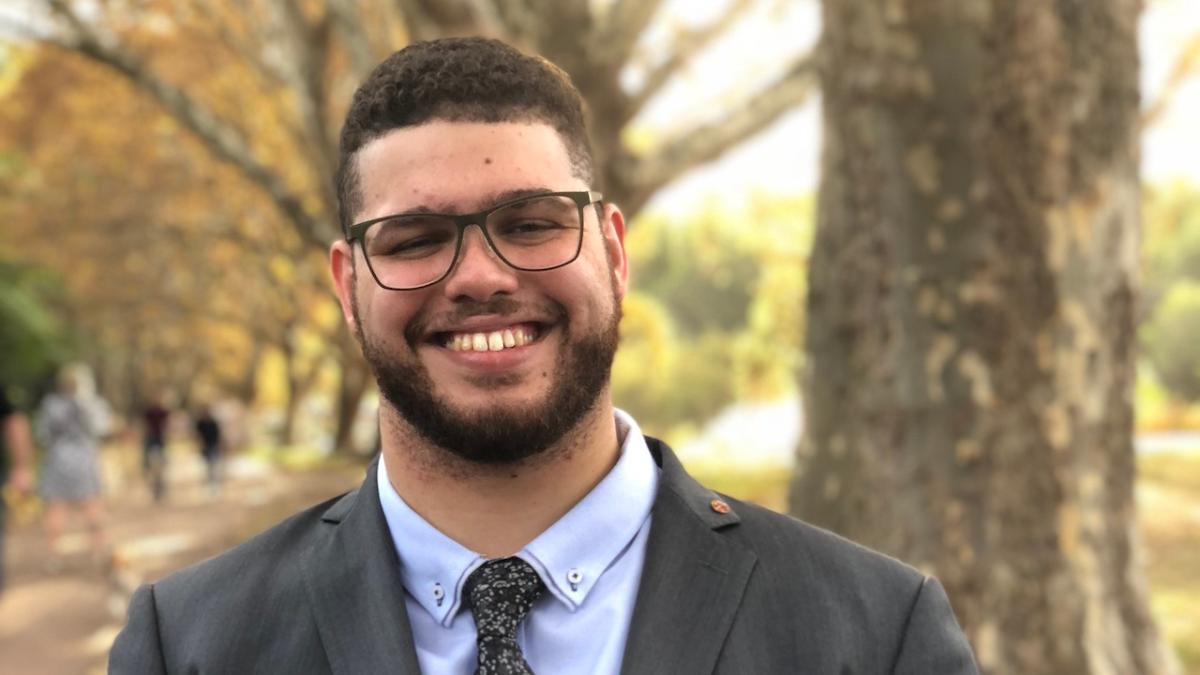
For many in our Australian disability community, the concept of disability pride is pretty new and radical. Similar to Black Pride and Queer Pride, it’s a mindset and a movement that celebrates our identity as disabled people and rejects the idea that we are broken or a burden. It’s an emerging concept that’s breaking the mould of society’s expectations and challenging old assumptions.
My journey to disability pride has been shaped heavily by the love, respect, and autonomy given to me by my family. I’m now at a place where I know that while I might not be able to walk, I’m not broken, I’m still ok. Because ultimately my brain and legs not working isn’t the problem, it’s that society is built for a certain type of body and a certain type of brain.
And to me, it doesn’t make any sense that our society has been built with countless systemic barriers, and so many individuals are left to navigate these barriers alone.
Let me drop some numbers on you.
“Around 1 in 6 (18%) people in Australia—or about 4.4 million—have a disability. Another 22% of people in Australia have a long-term health condition but no disability, and the remaining 60% have no disability or long-term health condition.”
Source: The Australian Institute of Health and Welfare, October 2020
That’s an independent public agency, with no vested interests, telling us that we’re looking at a 40/60 split in this country between those of us who have a long-term health condition or disability, and non-disabled people. And remember that mental health diagnoses are not well captured by either disability or health condition metrics, so even 60% looks generous here.
Are you surprised by these numbers? You could be forgiven for thinking disability and chronic illness affect a very small number of people. You might even have been taught to push your own needs down, like the need for mental health care or dental or doctor visits, believing that you’re not urgent and therefore you should just keep calm and carry on.
Chances are, if you were drawn to read this, you might also experience one of the ways society disables us: whether that’s a physical barrier like steps or door width, or a societal problem like needing to work 35+ hours a week to keep the rent paid, regardless of what that does to your health.
From where I’m sitting we need big, bold policy changes to make our society inclusive for everyone. These changes start by understanding the ‘social model of disability’ , understanding that society has been designed to disable us: our bodies and brains aren’t the problem.
You can see how revolutionary this is, right? People aren’t the problem!
Building a world that doesn’t work for more than 40% of the population? Making people feel bad about needing assistance to participate? There’s your problem.
View this post on Instagram
It’s good to give people healthcare, actually
Healthcare is one of those spaces that we’ve designed that’s failing to meet the needs of so many people in our community.
And this is where we get to a fundamental principle, which is slowly becoming better understood: Nothing about us, without us.
Put another way: the people who use health services should be the people who design health services.
[Editor’s note: Senator Jordon Steele-John has been named the Greens Health Spokesperson, making him the first person with a physical disability to be a health spokesperson in any party. There has never been a Federal Health minister in Australia with a physical disability.]
And that’s why I’m so proud to share my first policy announcement as The Australian Greens Health spokesperson. It’s one that those who use our health service are calling out for.
And here it is: if the Greens are in shared power after the next federal election, we will push the government to expand Medicare to completely cover mental health treatment.
We need bold change to get us out of the mental health crisis
The mental health system was in crisis before the pandemic. And now, with so many people facing lost work, the loneliness of lockdown, or the fear of opening up and what it means for our health, it’s adding a whole extra layer of anxiety on top of the existential dread of climate change and the uncertainty of our futures.
There’s a lot of work to do to get our mental health care system working for all of us. One of the barriers is getting mental health support is really, really expensive.
A mental health care plan pays $129.55 of your psychology appointment. But the APS (Australian Psychological Society) recommends that appointments are priced at $267.
At that rate, your 10 annual sessions with a psychologist cost you $1374 out of pocket.
Let that sink in. You’re personally paying more than a thousand bucks a year to see your psych less than once a month.
And once your Medicare session cap is up, you’re back up to paying full price for a session.
This is such an easy thing to fix. Under our plan, we would commit $1.12bn to raise the Medicare rate (so your psych can bill the whole cost to Medicare) and we’ll remove the limit on sessions.
Sounds great! Can we afford it?
When you think about all the things the government spends money on, like cancelling a French Submarine contract ($2.4 billion), or even more so – the cost of buying new nuclear submarines (at least $52 billion), $1.12billion doesn’t seem so hectic. Rather than wasting money on submarines, we should be investing in the well-being of our community.
Less than half of cancelling a defence contract, and we could all have free psychology and psychiatry. Can you imagine?
Plus, we stand to raise $338bn over a decade by taxing the tycoons and big corporates’ super-profits, as we announced last week.
When big corporates and mining companies pay their fair share of tax, we can all afford to have a better life.
The next election will be tight, and shared power between Labor and the Greens is a highly possible outcome.
It doesn’t take a lot to create and enact policy like this, but it does take the right people and the political will.
In my experience, when you know your community, you know what they need, and you come into parliament ready to fight for it.
This is just the beginning for what we can achieve together, when we remember that what’s important is being uncompromisingly, fearlessly, proudly ourselves. And demanding that society make room for us.
Jordon Steele-John is an Australian Senator, and the Greens spokesperson for Health – making him the first ever Health spokesperson with a physical disability.







